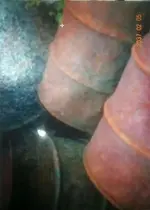who said government gets 75? i think you should check your legal basis .
the law on this matter is no longer covered under the civil code only if it conflicts with REpublic Act 10066 or the National Cultural Heritage ACt of 2009 ( some said its RA 8492 or the National Museum Act of 1998 or its implementing rules DENR DAO 2002–04. Others claimed the prevailing law is Republic Act 4846, as amended by PD 374, otherwise known as Cultural Properties Preservation Act. However, RA 10066 is the latest law, thus it is the prevailing law. ). Please read the National Museum Office Order no. 83, series of 2011 (January 5, 2011) entitled THE ISSUANCE OFPERMITS FOR TREASURE HUNTING on page 171 of this link
https://www.nationalmuseum.gov.ph/nationalmuseumbeta/Transparency/3.%20Pawim%20CPRD%20%20Final%20pdf.pdf , and the underlying authority in implementing rules of RA 10066 on this link -
https://www.wipo.int/edocs/lexdocs/laws/en/ph/ph141en.pdf. For the actual text of RA 10066, please search the internet. Please disregard DENR DAO 2002–04 and other DENR issuances because the said implementing rules are no longer valid with the passage of RA 10066 and National Museum Office Order 83, series of 2011. In view of the abovementioned laws , if you buy a gold coming from treasure recoveries, it is very difficult to buy and transport those golds. the Government in NM office order 83, series of 2011 will require the finder to turn over all the golds and other items resulting from treasure recoveries for proper valuation and disposition. they will also require from the finder a copy of treasure permit previously issued by National Museum , a formal intent to transport those goods. Once the gold and other items are turned over, the the Natioanl Museum shall determine if the said gold and other items resulting from treasure finds have cultural and historical value. Simply said, all the treasures recovered will be turned over to the National Museum for appropriate action ( to follow the new sharing scheme under the new law and to determine if they have cultural and historical significance for other items found during treasure recoveries). Based on the net proceeds ,
- If public land- Government gets 50%, permit holder gets 50%.
- if private lands- Government gets 30% , applicant gets 70%.
when all proceeds have been distributed, the government confiscates any intellectural property rights arising from the documentation or recording of the discovery by film, video, publication and media, which means the government confiscates any rights which you may have obtained in recovering the treasure. the government is the automatic owner of those intellectual rights. you cannot publish or disseminate those knowledge without the approval of the owner in default (government). Section 16 of National Office Order , 83 , series of 2011 provides the following: An intellectual property rights arising from the documentation or recording of the discovery, recovery and other such activities pertaining to Treasure Hunting by means of still photography, film, video or other forms of electronic media, publication of the images generated thereby and other forms of reproduction or dissemination of the same belong to the Government and shall be governed by appropriate laws. EXPORT OF GOLD FROM TREASURE RECOVERIES - needs BsP approval ANy export of those golds are allowed only upon the approval of the Bangko Sentral ng Pilipinas ( old name of BSP is Central Bank of the Philippines ) . please take note that the export must be approved by BSP and not National Museum. For other information about treasure hunting recoveries and permits, please click this link :
https://www.nationalmuseum.gov.ph/nationalmuseumbeta/Transparency/3.%20Pawim%20CPRD%20%20Final%20pdf.pdf If you have already researched the matter exhaustively, it makes you think that Philippine Laws on treasure finds or treasure recoveries are a little bit unfair . However, the prevailing laws and regulations on treasure recoveries are not unfair. Compare Philippine laws on treasure recoveries with those of the other countries, and see how the Philippines fair on that matter. Plus , the laws are fair considering that all natural resources even those buried under the ground , and even on private lands, are all owned by the Government under the Regalian Doctrine (public land -government gets 50%, if private lands, governemtn gets 30% under the regalian doctrine). But the government , aware of the efforts made and expenses spent by the treasure hunters, allows itself to share the gold find with the permit holders/treasure hunters. We should be happy we can still share the gold with the government, and not all treasure finds are confiscated similar to other places.



 which ain't right either !
which ain't right either !







